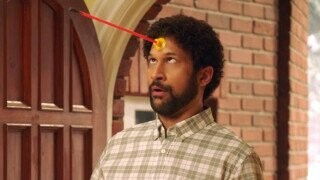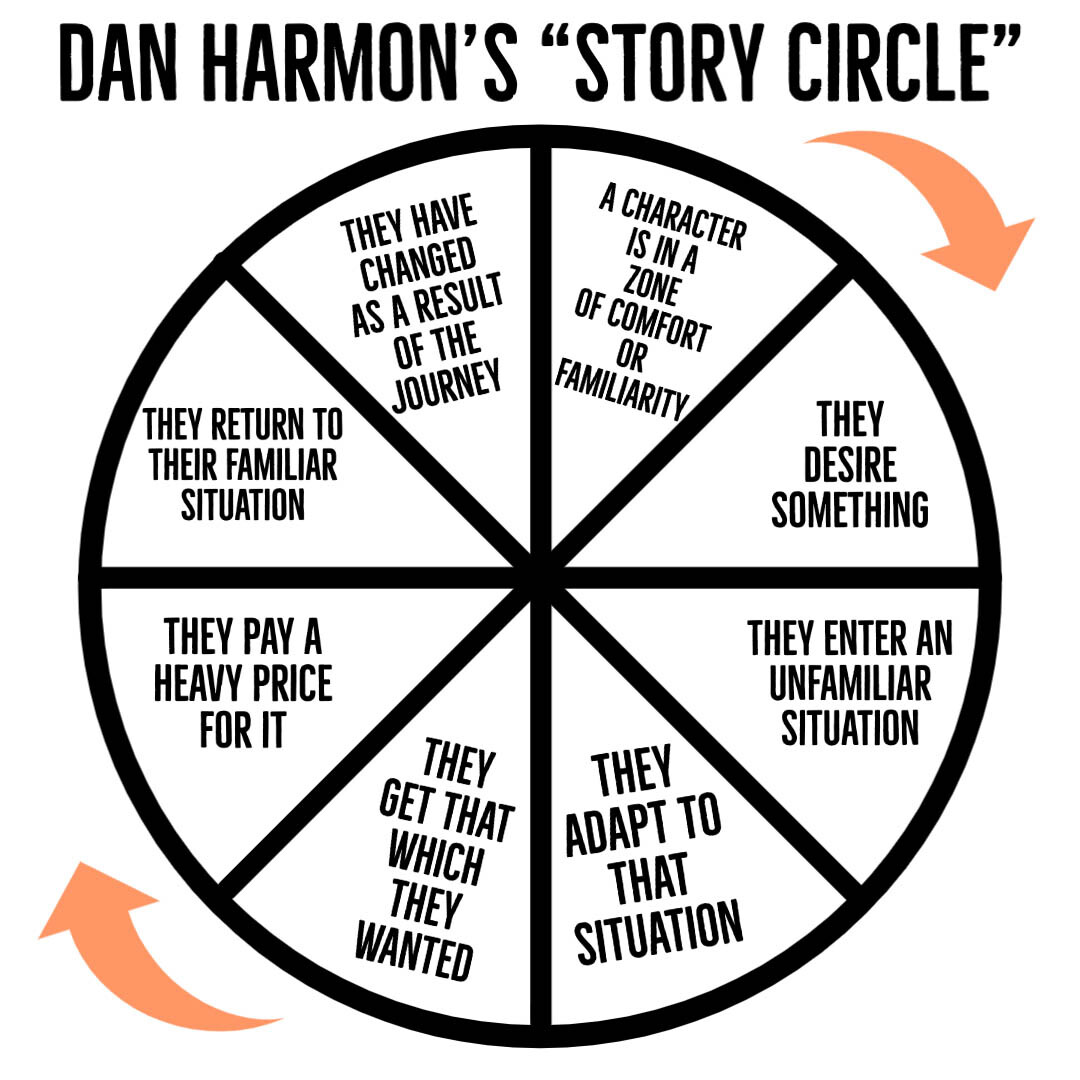Heavy Meta: Sitcoms to Watch Before Reboot

Reboot is the latest comedy to go all M.C. Escher on us, a Hulu show about a Hulu show about rebooting an old sitcom that’s a parody of early aughts sitcoms. Got it? The jokes are solid and the cast even better than that (welcome back to comedy, Paul Reiser!), but it’s the Russian nesting doll effect -- what the show in a show has to say about such shows -- that provides most of the heavily layered fun.
The recently released Reboot doesn’t have quite enough episodes to binge yet, but don’t despair. As a primer, check out these TV comedies that mined meta for self-referential laughs.
Community
Was Community making fun of sitcoms all along? Not according to Dan Harmon: "It's not really a spoof of the sitcom format, because the sitcom format is being as much honored and appreciated by the show as it is sometimes rattled by the show's energy.” OK, so not “making fun,” but Community was one of the first shows that assumed we knew how sitcoms were constructed. If you didn’t get it, that was your problem.
“Watching it now, I’m like, ‘Oh this show is really subversive and kind of punk,’” Donald Glover told Variety, although “at the time, it didn’t feel like… our show was the cool thing.”
Community’s sitcom meta-commentary is personified by Abed, whose standing on the autism spectrum informed his insight that he and his fellow study buddies were actually characters on a TV show. Or, perhaps, Abed would argue we’re all characters on sitcoms of our own making? That would be the best timeline of all, other than one in which the movie is definitely happening.
WandaVision
If you’ve ever used your favorite situation comedies as sweet escape from life’s miseries (we’re looking at you, all-night Office binger), then you have a friend in Wanda Maximoff. Hiding from trauma in the simple pleasures of old comedy friends, WandaVision tweaks classic sitcom tropes while slowly revealing the horror lurking behind the laughs.
The subtext is dark, but its view of television comedy is anything but, celebrating sitcoms’ ability to deliver a comforting, er, vision of everyday life when actual everyday life fails to deliver the goods. From its gleeful theme song parodies to delightfully hodgepodge set designs, WandaVision is an Easter egg hunt for comedy nerds. Hey, there’s a Dick Van Dyke Show reference! I get it, that’s Malcolm in the Middle! Happy hunting.
Kevin James and Leah Remini. Jim Belushi and Courtney Thorne-Smith. Fred and Wilma Flintstone Why do sitcoms insist on pairing shlubby comics with uncommonly attractive spouses? The trope is so pervasive that TV Guide did a Top Fat Guys With Hot Wives list.
But Kevin Can F Himself knows that it’s not just about attractiveness imbalance. The sitcom slobs are also, more often than not, sexist man-babies who put their wives through a type of exasperated suffering that wouldn’t be nearly as funny without the laugh track. That’s where Kevin Can F Himself’s sitcom deconstruction begins -- stripping away the studio audience guffaws, sitcom sets, and corny punchlines to expose the self-centered misogyny that’s often concealed underneath the chuckles. We think there’s also something kinda meta about casting Annie Murphy (Schitts’ Creek’s flighty Alexa) as Allison, the put-upon wife who just can’t take it anymore.
A pioneer in sitcoms that deconstruct the sitcom, Jerry Seinfeld spent an entire season playing “Jerry Seinfeld,” pitching fictional NBC executives on a show about nothing, the critics’ one-line shorthand for Seinfeld.
George explaining the show’s anticomedy underpinnings to befuddled NBC brass helps us understand just how difficult it must have been for Seinfeld and Larry David to get this plane off the ground in the first place. The joke on us is that “the show about nothing” was the most structurally complex sitcom of all time, with multiple storylines zigging and zagging before colliding into unexpected comic conclusions.
The show’s slyest deconstruction was its debasing of that most hallowed of sitcom tropes, the heartfelt ending where the characters learn a lesson. “No hugging, no learning” was the spoonful of nasty comedy medicine we didn’t know we needed.
It’s Garry Shandling’s Show
Years before The Larry Sanders Show, Garry Shandling set about unraveling the America sitcom one cliche at a time, starting with his opening theme song. The best sitcom lyrics of all time go like this:
This is the theme to Garry's Show,
The theme to Garry's show.
Garry called me up and asked if I would write his theme song.
I'm almost halfway finished,
How do you like it so far,
How do you like the theme to Garry's Show?
This is the theme to Garry's Show,
The opening theme to Garry's show.
This is the music that you hear as you watch the credits.
We're almost to the part of where I start to whistle.
Then we'll watch "It's Garry Shandling's Show".
(jaunty whistling)
This was the theme to Garry Shandling's show.
From the show’s title to Garry’s constant breaking of the fourth wall to reassure us that he knows he’s on a stupid TV show, there had never been a sitcom that leaned so heavily into acknowledging the genre’s trivialities. Earlier comics like George Burns had turned to camera to address the audience directly, but It’s Garry Shandling’s Show went the extra mile, with supporting characters who fully understood they were on television and a studio audience who might as well have been in the cast. (In one episode, audience members were invited to use Garry’s apartment mid-show while he went to a baseball game.)
Rick and Morty
If Community was Dan Harmon’s first foray into self-referential comedy, Rick and Morty took it to a whole new level, telling more and more stories about the craft of telling stories. Harmon famously uses his Story Circle to develop satisfying narratives--and in one episode, he pretty much has Rick lay out the whole dang thing.

Wikimedia Commons

Warner Bros. Television
The rest of the episode features Rick and Morty trying to subvert the story circle itself. Can they take control of the narrative and step outside the continuity so valued by the villain Story Lord (a stand-in for Harmon)? It’s a clever commentary on both Harmon’s own highly structured plots and online fans’ obsessive desire to preserve canon.
Does Rick and Morty take all this deconstruction too far? After all, how many stoned Adult Swim viewers are familiar with literary devices like the Bechdel Test or the difference between episodic and anthology-style storytelling? Harmon and co-creator Justin Roiland play it smart, throwing in enough bathroom humor and mindless violence so that there's something for everyone.
For more ComedyNerd, be sure to check out:
Bill Burr and Molly Ringwald Made The Most Boring Sitcom Of The '90s
From Community To Atlanta: 13 Donald Glover Facts
When Michael Bay Made The Onion Take Down A Joke
For ComedyNerd exclusive content and more, subscribe to our fancy newsletter:
Top image: Hulu Originals
